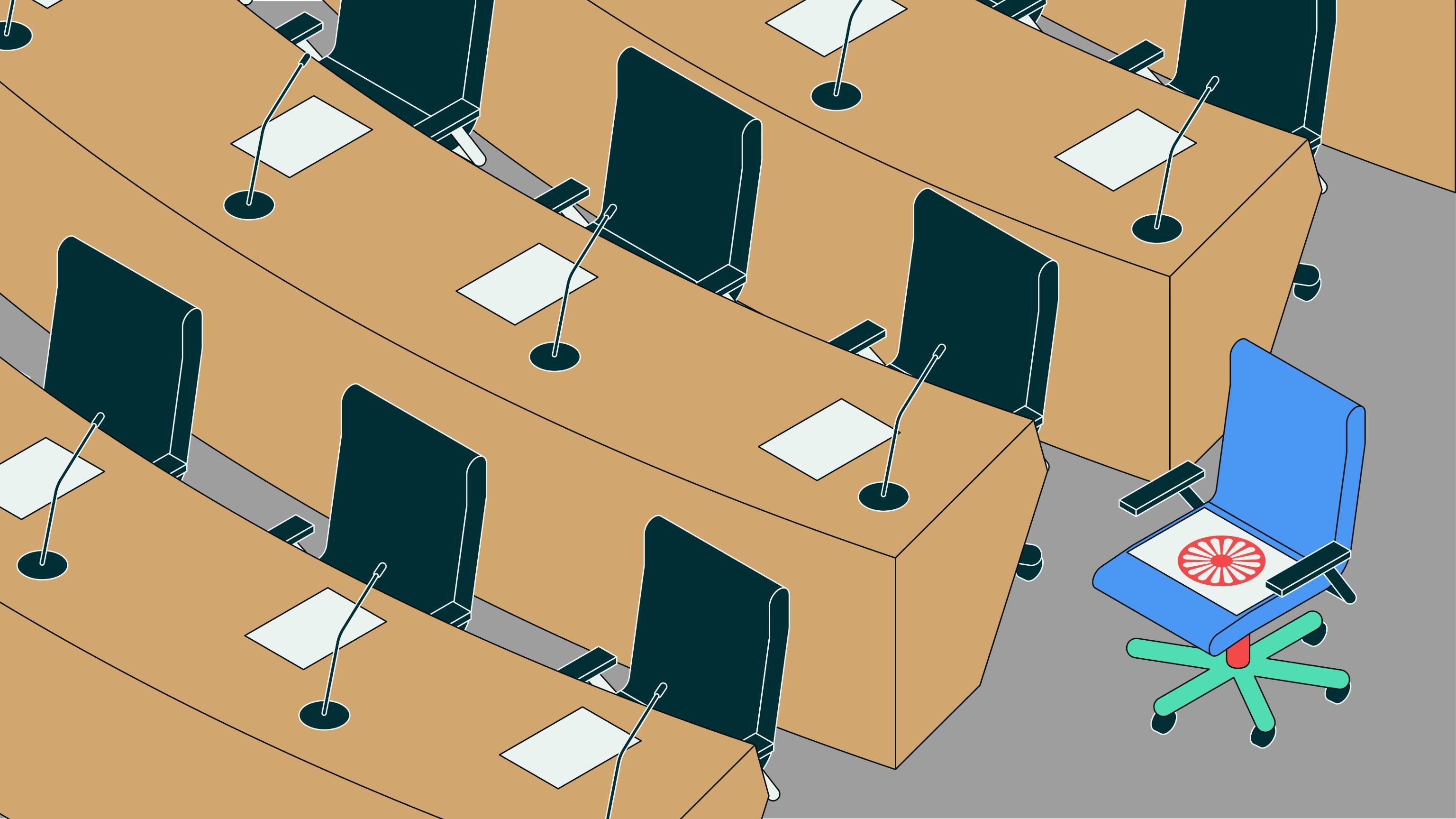It is the great consensus across the political spectrum, from the far right to the far left. As different as their views may be, all the parties of the 27 EU countries have agreed: for the first time since 2004, not a single Roma person will be part of the European Parliament.
In other words, of the 720 seats representing the European Union’s citizens, not one has been guaranteed to a member of the largest minority in Europe. Six million EU citizens are seeing the violation of their most fundamental right in a democracy: the right to political representation.
The absence of Roma representatives in the new European Parliament after the 9 June elections is a clear reflection of how political organisations across the EU continue to fail to give voices to all the minorities in our society. Paradoxically, the European Union was founded in part to defend the rights of minorities. Ironic, isn’t it?
The process by which political parties select candidates perpetuates systemic biases
First, let’s be clear: political parties are not doing enough to include Roma in their lists because prejudice and discrimination still weigh too heavily. The processes by which political parties select candidates for their electoral lists often reflect and perpetuate systemic biases against minority groups. Selection processes are opaque and influenced by internal politics rather than merit or representativeness. It is a flawed system with repercussions for marginalised communities such as the Roma.
Due to prevailing stereotypes and the lack of strong advocacy within party ranks, Roma are less likely to be placed in winnable positions on electoral lists. This underrepresentation in politics not only diminishes the Roma community’s voice in legislative processes but also impacts the development and implementation of policies that address their specific needs.
Latent anti-Gypsyism is now more apparent than ever at the political level, and the result is devastating: Roma lack the visibility and political opportunities that should be constitutionally guaranteed. Doors are closing instead of opening. Three of the four Roma MEPs in the outgoing European Parliament were not on the lists again this year.
Meanwhile, the Roma community continues to fight against stigmatisation and marginalisation. Institutional distrust towards the Roma continues to impede the advancement of rights in critical areas such as housing and education. In several European cities, for example, Roma communities still face significant challenges in accessing decent housing and are sometimes forcibly segregated into impoverished neighbourhoods with inadequate facilities.
Many Roma refuse to support parties that forget about their promises once the votes are counted
Roma children are often disproportionately placed in special education classes based solely on their ethnicity or subjected to bullying and other forms of exclusion within mainstream schools. Discrimination impacts their educational attainment and limits their future opportunities. Segregation reinforces socioeconomic disparities and perpetuates stereotypes.
This is why, in turn, the Roma community does not trust a system that has historically discriminated against them and continues to do so while showing no serious interest in overcoming systemic hurdles. As a result, many Roma refuse to participate in elections or support parties that are only interested in them during the campaign—but forget about their promises once the votes are counted.
The reality is that without financial, logistical and organisational support, Roma citizens face a battle that seems impossible to win. We need more than empty words; real resources and support are required to have opportunities for political representation. The EU has a significant influence in setting standards and policies for member states regarding minority rights and inclusion. It can provide funding, oversight and directives that encourage member states to improve political inclusion for Roma.
The fight for equality and inclusion must be our priority, not just for the sake of the Roma
If Roma do not have the possibility to shape politics, the democratic pretension of justice turns into a dead letter. All citizens deserve a voice to represent them in the European Parliament. It is a matter of justice, dignity and universal human rights. If we deny political participation to the Roma and other minorities, we cannot be surprised by the absence of anti-racist discourses and policies; the ground has been prepared for the political normalisation of supporters of a “white” Europe without diversity.
The fight for equality and inclusion must be our priority, not just for the sake of the Roma. Europe cannot continue to advance while leaving entire communities behind. Their exclusion not only harms those directly affected but also weakens Europe by squandering potential human capital and fostering social division.
When significant portions of the population are excluded from contributing fully to political and economic life, it diminishes innovation, productivity and social cohesion, ultimately holding back the entire continent’s progress and stability.
Once we recover from the blow of the European elections, it will be more important than ever to actively work towards creating equal opportunities for Roma. Ensuring inclusion in all aspects of societal development strengthens the value of diversity as a pillar of the democratic fabric and economic vitality of Europe.

Ismael Cortés
Associate Professor at the Unesco Institute of Philosophy for Peace
The latest

Serbia Must Amend Missing Persons Alert System to Protect Vulnerable Adults

Constitutional Review of the Šutar Law Confirms Serious Rule-of-Law Concerns

Europe’s Growth Depends on Roma Talent
Browse by category
Campaigns
Events
Facts
Press
Voices
For media inquiries:
[email protected]Sign up here so you don’t miss out on campaign updates, upcoming events and other news from the Roma Foundation for Europe and our network.
Sign up for our newsletter